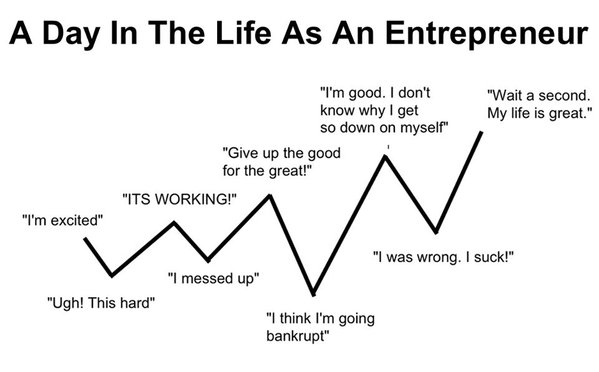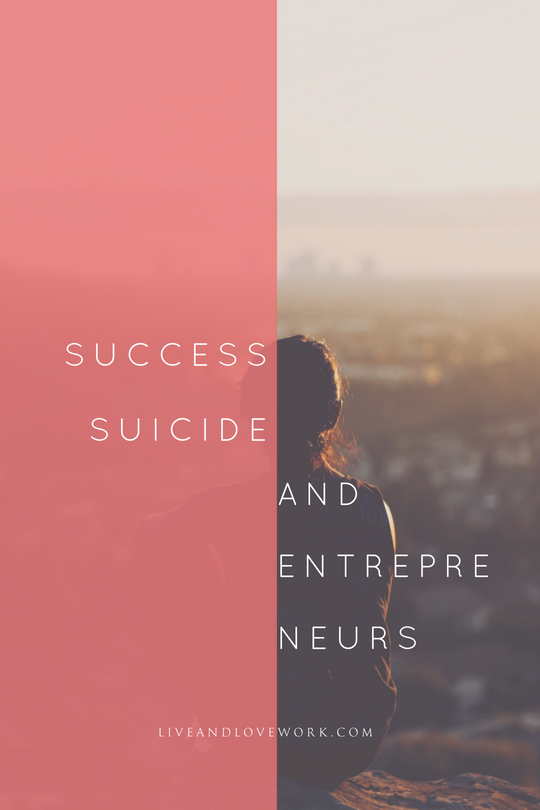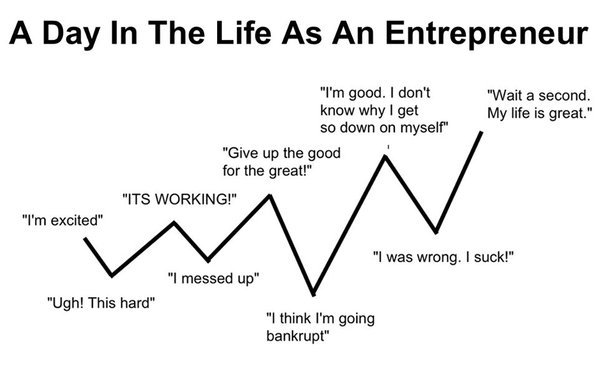1 in 3 entrepreneurs live with depression, and I’m one of them.
I was first diagnosed with depression in childhood, along with anxiety and post traumatic stress disorder (PTSD). With an Adverse Childhood Experiences (ACE) score of 9 out of 10 adverse childhood experiences, I’m at high risk for serious physical and mental health problems from heart disease to suicide.
Since starting my business in 2015 I’ve experienced depression in unexpected new ways. Entrepreneurship is especially difficult for those who experience depression because of the isolation and high stress of building and growing a business.

Image credit: Derek Halpern and Entrepreneur.com
There is little, if any, stability in entrepreneurship. Failure and success lie around every corner.
Adding to the stress of being entrepreneur, many entrepreneurs start businesses alone. Working alone at home or in coffee shops. Friends and family who lack the entrepreneurial spirit don’t get it- they think we’re crazy and, well, we just might be.
Last year at a business development retreat, just after doubling my income goal, I experienced my first PTSD trigger in nearly 20 years. It came out of nowhere. It was so unexpected I spent days in a highly triggered state, not understanding what was happening to me.
I thought about ending my life.
I knew I did not actually want to die. I struggled to differentiate between the past and the present. I realized what was happening to me when I recognized thoughts and feelings from the past were flooding my perspective- this was a PTSD trigger. I immediately approached the retreat facilitators and asked for help.
I came home from that retreat shaken. I got the help I needed and recovered from the trigger, now more aware of the link between entrepreneurship and my health.
Over the past 2 months my business has been booming! My hard work is paying off and more opportunities are coming my way. Once more I’ve doubled my income. It’s likely no coincidence that over the last 2 months I’ve noticed feeling irritable, anxious, and depressed. There is a link between success and depression.

The recent suicide deaths of celebrated personalities Kate Spade and Anthony Bourdain have brought the conversation of success and depression to the forefront. Chasing success, being visible, pushing yourself towards greatness can be a trigger for depression; it certainly has been for me. When you add the isolation of working for yourself, by yourself, that risk is heightened.
As I continue to grow my business, I am strengthening my support system, and creating safe space for my success. Here’s how I do manage the ups and downs of entrepreneurship.
Cowork
Depression thrives in isolation. Join a coworking space and you’ll be surrounded by the friendly faces and support of other entrepreneurs and freelancers.
Build community
Find a community of entrepreneurs facing similar challenges. Engage yourself in this community. Share your ups and downs. You may find your community at networking groups, mastermind groups, or Meetup groups. If no such community exists, create one.
Focus on the journey, not the destination
Neither failure or success is permanent. Reaching your biggest, boldest goals won’t make your problems go away. Focus on the journey, not the destination. Don’t make your business about reaching 6 figures or more. Instead, pay attention and be mindful in each step along the way.
Self care
Self care is especially important for entrepreneurs, who are often high achieving, driven individuals who will work themselves too hard. If you’re an entrepreneur, it’s likely you need a robust self care practice.
Get professional help
Coaches and mentors can provide support but we are not licensed mental health professionals. If you’re experiencing depression, anxiety, or any other mental illness, get professional help, and don’t rely on a coach or mentor alone.
There’s no question entrepreneurship is a difficult, often murky endeavor. Entrepreneurs are at higher risk for depression and other mental health concerns. Ultimately, your mental health and well-being is up to you. Create a strong support system. Know your triggers. Use your tools. Always remember you’re not alone.
Find more mental health resources HERE.

